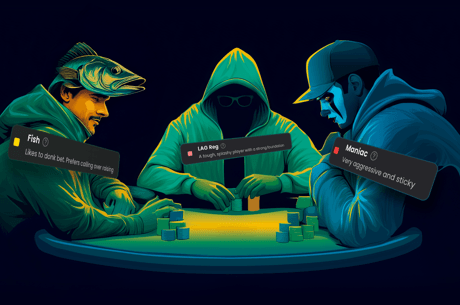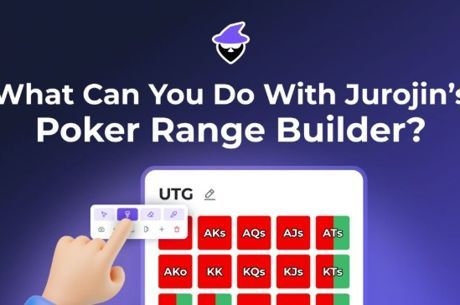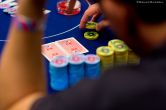Self-Control: Your Most Important Poker Resource, and How to Get More of It

I like Scientific American magazine, but this year I’ve gotten behind on my reading of it, so now I’m doing some catch-up. I just finished the April issue.
In it I found an interesting article by Roy Baumeister, “Conquer Yourself, Conquer the World.” It’s a review of what psychologists have learned about how self-control underlies virtually all successes. The article’s title comes from a line in a novel by Brazilian writer Paulo Coelho: “If you conquer yourself, then you will conquer the world.”
Baumeister starts by reviewing the now-classic “marshmallow test” from the late 1960s-early 1970s. Children were offered a marshmallow, which they could eat immediately. But if they could resist the temptation to eat it right away, after some period of time they would be rewarded with two marshmallows. Follow-up studies tracked the original participants into young adulthood, then into middle age, and found that those who were able to postpone gratification became the most successful adults across a variety of measurements.
Baumeister then summarizes the more detailed research that has subsequently been done. He says that psychologists have found that self-control or willpower is analogous to how muscles work in some key ways:
- Self-control is a finite resource, and seems to tire after being used. For example, test subjects who have to exercise self-control to resist chocolates and cookies, then are asked to tackle a difficult puzzle, give up sooner than those who had not first had to resist the goodies.
- Just like a muscle, self-control can be strengthened by regularly exercising it. Baumeister tells of tests where they would have one group performing exercises in self-control (e.g., not cursing for two weeks) and another control group who would not. They’d then perform tests on the two groups measuring their self-control in other ways (e.g., squeezing a hand-grip for as long as possible), and of the two groups the one that had been practicing self-control performed significantly better.
- As those examples attest, self-control is a flexible resource that can be expended in a variety of ways, just as strengthening a muscle by weightlifting allows it to perform better at an unrelated task, such as swinging a baseball bat.
Okay, you can probably see where I’m going with this. Nobody can seriously dispute the fact that self-control is absolutely essential to poker success. Discipline is called on in a variety of different ways during the course of a poker session. You could say it begins with the decision to play at all. You should decide not to play if you’re tired, hungry, angry, or feeling anxious about the money you might lose.
Once you’re seated, it takes self-control to throw away one bad starting hand after another. It takes self-control to fold a second-best hand when you believe you’re beat. It takes self-control to keep your hole cards face-down after winning a pot with an uncalled bet, rather than showing off either the nuts or a total bluff.
It takes self-control to react with civility — or not at all — to an obnoxious jerk at the table, when it would be so satisfying to tell him off or punch him in the mouth. It takes self-control to continue playing your A-game after a bad beat — even more so after two or three of them. It takes self-control to focus exclusively on the game, rather than the million distractions that the poker room and our smart phones offer us.
It takes self-control to leave the game with a loss if you know you’re not playing well or it’s not a good game. It takes self-control to leave a winner after getting unusually lucky, rather than stay and hope that lightning strikes twice. And as you leave the casino, it takes self-control to walk past all the other gambling temptations, in an attempt either to recoup your poker losses or parlay your profits into an even bigger win.
Learn What Can Lessen Your Self-Control
Given the need for a healthy store of self-control to draw upon during the course of a poker session, what can we take from Baumeister’s insights that would help us maintain our reserves?
First, we have to be aware of the kinds of things that can sap our reservoir of self-control faster than usual.
For instance, being physically uncomfortable means fighting against a constant, draining force. This can be from hunger, thirst, a hard chair, too-close crowding by adjacent players, being too hot or too cold, needing to use the restroom, or whatever. Taking affirmative measures to ameliorate any such factors will help you relax and make better decisions as a result.
Being annoyed drains self-control, because it requires actively resisting the urge to lash out at what is bothering you. The annoyance can come from a slow or mistake-prone dealer, an overly loud or chatty player, people being slow because they’re all watching a big football game, new players who don’t know rules and procedures, or a thousand other things. Monitor yourself, and if you sense that such factors are taxing your patience, move to another table, or cash out and wait to play another day. (I confess to being a person who is annoyed more easily and by a broader spectrum of things than most people, so this is something I have to watch out for.)
Being unlucky saps your patience. Of course, there’s nothing you can do to change this, but you have to be aware that it’s happening and that it’s taking a toll on your ability to make continued good decisions.
Being preoccupied by unrelated troubles decreases your stock of self-control. A big project deadline at work, a recent argument with a spouse, bills you’re worried about paying, a teenaged child in trouble with the law, or a million other nagging thoughts can be dismissed from the front of one’s mind, but they’re still there, in the back, nibbling away at your attention and self-control.
Learn What Can Increase Your Self-Control
Knowing what potentially gets in the way of self-control, then, how can we exercise our self-control “muscles” so that we have a bigger reserve to draw on when playing? Here are a few to try.
Play from a seat that is not your usual or favorite, forcing you into a visual perspective on the table that you don’t usually have. After all, you won’t always get to choose, especially in a tournament.
If you’re addicted to playing games, checking social media, monitoring work emails, checking sports scores, and all the other things that our miracles of modern technology put into our pockets, set progressively increasing intervals of time that you force yourself to keep your phone put away, completely out of sight. If five minutes is a strain for you, start there, then gradually increase to ten, 15, 20, 30, and an hour. (You really can live without it for a while, you know. We all did for the entire course of human history, up until the last few years.)
Read and think about Tommy Angelo’s wonderful story of forcing himself to fold aces before the flop, simply because it was a difficult thing to do. (If you’re worried about losing value by repeating that exercise, ponder the wisdom of Lee Jones’s observation in that story: “How much is it worth to know that those aces are two little pieces of plastic, that you control them, and not vice-versa?”) It may seem like such advice contradicts the earlier advice about reducing strains. And it is, to a degree. But think of it as analogous to jogging with ankle weights — a modest extra strain in order to become stronger, not so much that it makes you unable to take another step after a few blocks.
Don’t forget that self-control is a flexible, fungible resource, and you can increase your stores of self-control by all sorts of exercises away from the poker table. Force yourself to make healthy choices in your diet, to stop eating when you’re full, or to take half of a piece of pie instead of the extra-generous portion. Push yourself in physical exercise. Pick any bad habit you can identify in yourself, make a plan to replace it with a complementary good habit, then carry out that plan.
All such choices strengthen your self-control, and will eventually result in your having more of it available when you sit down with the cards and chips. And that, in turn, will give you a big edge over all the people at the table who have through laziness and inaction let their self-control muscles get weak and flabby.
You may not conquer the world, but wouldn’t it be nice to conquer these nine players?
Robert Woolley lives in Asheville, NC. He spent several years in Las Vegas and chronicled his life in poker on the “Poker Grump” blog.
Want to stay atop all the latest in the poker world? If so, make sure to get PokerNews updates on your social media outlets. Follow us on Twitter and find us on both Facebook and Google+!










